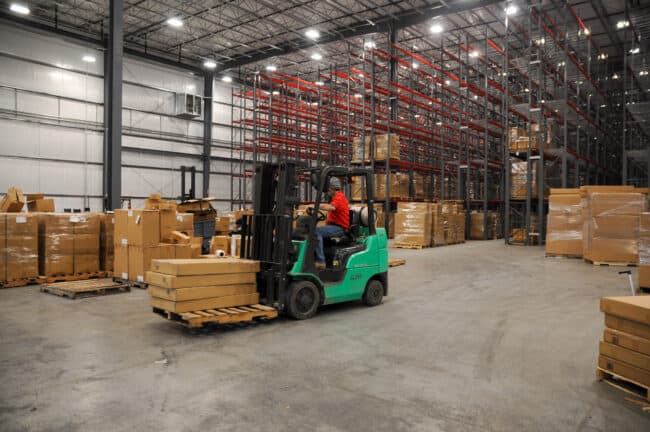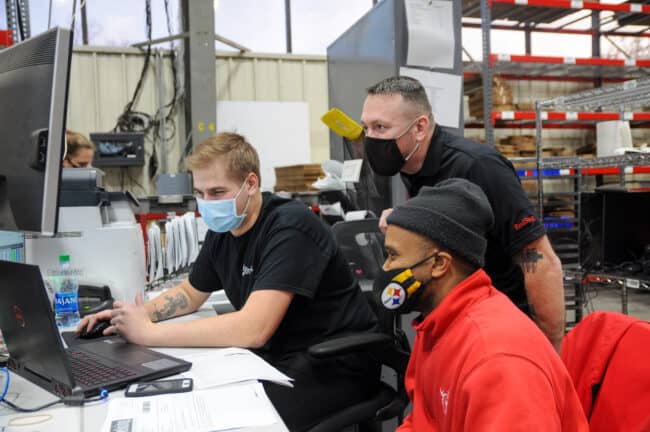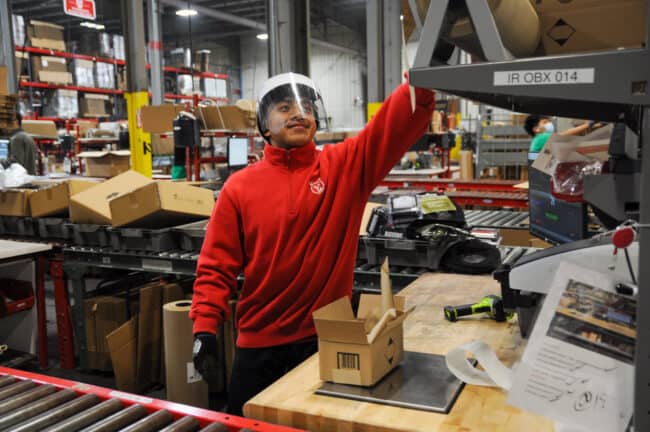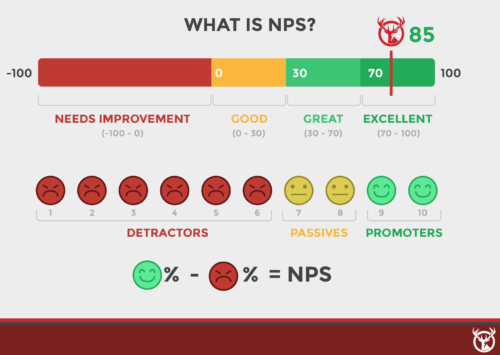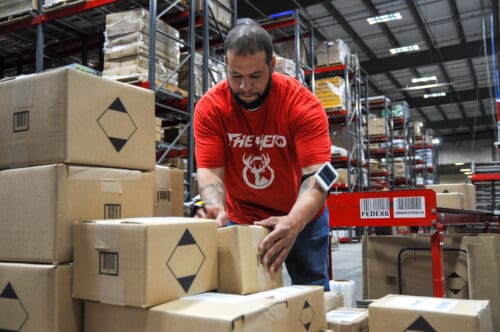The eCommerce world is still going strong, and with more time on their hands than ever, your car parts customers and hobbyists are buying more online, too. That means shifting some of your distribution and fulfillment to homes and personal garages, alongside more traditional B2B partners.
When auto parts dealers and suppliers start seeing this growth, they often look to companies like Red Stag Fulfillment to understand if outsourcing is possible, what it requires, and how they might benefit. So, we’ve talked with our shipping experts and gearheads to help you understand the right questions to ask a potential fulfillment partner — and we also give you our answers.
Do you work with companies like us?
The best place to start when considering auto parts fulfillment support is to understand if the 3PL has experience with your industry and comparable products. Think about how you’d best describe your business and products without mentioning car parts specifically to get a handle on approaching the conversation. For example, you might ask a potential partner if they handle:
- Bulky and heavy goods
- Small and heavy goods
- Goods that need extra care and protection
- High-volume SKUs
- Products that need kitting
- Support for D2C as well as B2B sales
At Red Stag, we’ve been working with heavy and bulky products since day 1, all the way back in 2013. We work with clients across various industries, including auto parts, and we recognize that each product has its own unique needs. We’re happy to work with companies to improve their fulfillment and provide a value-add to their business. It’s part of our goal to be a reliable partner, not a cookie-cutter service provider.
Is your shipping reliable?
“One thing that’s really important is shipment times and transit times, especially for auto parts,” says RSF Sales Executive Cole Sweetser. “If I have a car and I need a new taillight or a new headlight, I need that now. These are all need-to-have items.”
If you’re an auto parts dealer serving direct consumers, a top priority should be a fulfillment partner who makes guarantees for how quickly they get orders to your customers and how accurate they are. Every late package or incorrect order can cost you business, and the difference between a 4% and 0.02% mis-pick rate can be the difference between retaining a few hundred more customers every year.
At Red Stag Fulfillment, we keep this simple: 100% of your orders will be shipped according to your chosen service level (Next Business Day, 3:00 pm or 5:00 pm cutoff), or else you don’t pay for that shipment, and we’ll pay you $50 for the inconvenience. And our national fulfillment services can reach 99.6% of Americans within 1-2 days.
Ask any potential partner what their fulfillment strategy is and how they guarantee its success. When someone can’t offer the promises you need, keep searching.
What’s the integrity of your boxes?
Auto parts tend to be heavy, whether they’re large or small. That means if a truck jams its brakes and all the boxes move, your products might easily tear through a standard corrugated cardboard box. Ask how the potential fulfillment partner helps protect your goods.
There are a few options available to you here. First, you want to ensure that the fulfillment company can support existing packaging. You’ve already invested heavily in designing packaging to protect your products. If they’re safe to ship in current packaging, your partner should make this a priority.
Sometimes, you need a little extra padding. When that’s the case, ask for a clear understanding of the fulfillment company’s approach.
- What do they offer?
- What can’t they do?
- What will the box look like when it gets to your customer?
Red Stag offers flexible services to car parts dealers and other customers designed to protect your products. Boxes can be custom-cut, or we can work with your existing materials to ensure goods stay secure. When companies need help, we assist with sourcing packaging, too.
“When someone asks us about this type of packaging and protection, they often already have something in mind. If that’s you, tell us what you prefer, and we can work together to meet your needs,” says Sweetser.
How do you support my customer service?
One of the more frequent questions we get is for companies large and small to ask how we integrate with their customer service. You need someone who supports your team and can operate within your existing workflow. Every fulfillment company is a little different here, so ask about what you need specifically.
Red Stag’s approach is to provide your customer service agents with an order portal where they can log in and see the status of every order you have. We don’t interact with your customers directly because we want you to own the customer service successes and branding wins that come with reliable shipping and fast resolution. To help, we engineered our platform to make it easy for any agent to jump in, find the information they need, and resolve the issue.
By giving you access to order details directly, you don’t need to send us a question and wait for a response. That access includes everything in our warehouses, too, so you can always verify inventory levels and more. You get the exact number of products, SKUs, and orders at that precise moment.
“So, it’s not just the orders flowing in and out, but all of their inbound deliveries as well flow through that system,” says Matt Novak, Red Stag’s Client Relations Project Manager. “A customer’s entire inventory catalog is available, and there are customer service and internal business scenarios where they can use it.”
How do you handle intricate requirements?
Your business has its own custom set of needs and protections. These requirements should be something your fulfillment partner can address with a concrete plan. Put these together in a list and walk through the finer details with account managers at potential fulfillment partners.
- Can you store my goods in a particular way?
- How do you handle returns in general?
- Will you perform a specific inspection when receiving inbound goods? What about for returns?
- Can you handle a lot of SKUs? Does high or low volume make a difference?
- Do you offer LTL shipments for businesses as well as eCommerce support?
- What are your minimums for pallet shipments or other items?
You want to know that they can handle your business as is. While few fulfillment operations will be perfectly prepped for your sales ahead of time, quality providers can be flexible enough to support what you need. Working with customers similar to you will help set expectations and make it easier to find needed common ground. Look for a fulfillment partner who will give your business the respect and support it deserves.
“Most of our support focuses on traditional parcel fulfillment, but there are some areas where we do a lot of LTL fulfillment as well,” says Novak. “We can even help you with more complex needs, like getting products ready for Fulfillment By Amazon (FBA) services. Amazon has a lot of specific labeling requirements that we can meet. Or if you have a large partner with similar demands, like a body shop or retailer like an Auto Zone, we can help you handle that, too.”
Can you be a partner?
“We’re going to have in-depth conversations about what we can do and where we might be flexible in what we can do,” says Sweetser. “We’re going to create a partnership that isn’t like the normal business-customer relationship you find. Red Stag Fulfillment can’t be successful if our clients aren’t. That’s just the truth of it. So, to be a good partnership, we need to help you continue to grow and ship.”
One of the biggest warning signs for any specialty manufacturer, supplier, wholesaler, or business is when you get a flat PDF rate sheet that doesn’t address your products or customers. That means you’re being viewed as a commodity, and your interests aren’t being protected. Instead, look for someone that wants to treat you like a partner and addresses your operations.
“In the parts space, companies are coming to us because they need someone that can handle the size and weight of their products,” says Novak. “What we want to do is ask what brings you to us. Are you looking to scale? Do your customers need something you can’t offer right now? Are you struggling with orders or trying to control costs? Really, how can we help?”


